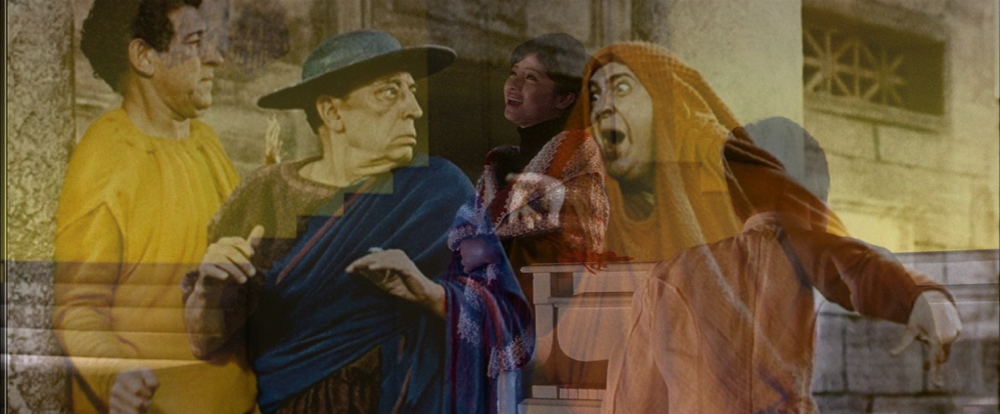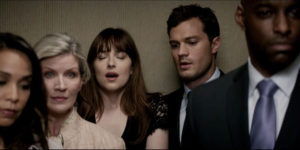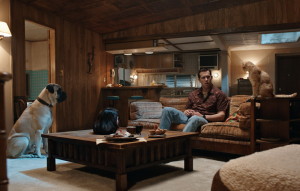It’s an open secret among everyone who does art criticism that rankings, comparisons, and gauges of quality are so unfair as to be borderline meaningless. Once you get to a certain level of quality, any idea of “better” or “worse” art kinda falls away, and halfway through ranking your 50 favorite science fiction comedy-dramas based on half-remembered quotes said by Tony Shalhoub’s legendary character Antonio Scarpacci from 1990s television series Wings, you realize that you’re just arbitrarily throwing al dente cinema noodles at the wall and seeing what sticks. That’s not to say it’s not enjoyable and interesting and a goddamn joy to do, but it’s really all a Buzzfeed-ready fart into the wind, a protest against the empty universe and your emptier wallet, because someone’s gotta get paid to tell the public which twenty-three GIFs of dogs reacting to meeting Thomas Pynchon (just offscreen) will most blow their minds. Clearly, what I’m saying is: I had to watch A Funny Thing Happened on the Way to the Forum and Tokyo Drifter and decide which was better. Thankfully, this fart was one of the easier ones I’ve had to pass.
A Funny Thing Happened on the Way to the Forum is a musical comedy farce about a slave in ancient Rome (Psuedolus, played by Zero Mostel) and his attempts to win his freedom by bringing together his young master Hero and Hero’s crush, a naive young courtesan named Philia who happens to live right next door. Standing in Psuedolus’ way is the current owner of the courtesan, the future owner of the courtesan, Hero’s parents, another slave of the house Senex, all manner of city officials, a seemingly endless chase sequence, Buster Keaton being wasted in a do-nothing role, a gladiator, and the procural of sweat from a female horse. There’s misunderstandings, misidentifications, miscommunications, and miscreants, and the mission is to mislead the mistook and misinformed. All of this is, ostensibly, funny. Adapted by Richard Lester from Stephen Sondheim’s (and Larry Gelbart’s, and Burt Shevelove’s) stage musical of the same name, it is most strikingly a weird waste of incredible talent both in front of and behind the camera (Nicolas Roeg lensed the damn thing), and the rare Sondheim musical that has nary a memorable song or tune.
That’s not to say it’s necessarily awful or painful to sit through (though it is that on a couple occasions), it’s just a bit of a drag, a joy-obsessed run through comedic set-pieces that strangely didn’t give me any joy. Now, to be fair, this may be entirely the fault of the viewer this time around; Lester is most famous for his work with the Beatles, a group who early on emulated the same kind of vibe this film goes for so hard, a vibe I simply can’t stomach in most cases, and a vibe I knew going in was likely to rub me wrong. It’s all soft edges and garish colors, hacky jokes delivered with the panache of a young Paul McCartney (by which I mean no panache at all). It’s a summer day at the beach with your extended family, an experience that I also would turn down no thought needed. It’s not that I’m against any of those things individually (besides summer days), it’s that taken together it seems like a mask of comedy, a falsity, someone playing at what they think being happy feels like. And I’ll admit that’s a problem with my withered old heart more than the film, but its facade just didn’t convince me. Speeding up a chariot chase to cartoon-levels of physical comedy isn’t wrong per-say, but adding in atrocious ADR punch-up over the top of it and extending it for what feels like three goddamn hours is.
That said, credit where credit is due, and it must be pointed out that Zero Mostel is, as always, a marvel, a consummate professional who seems unable to deliver a line poorly. No winks to the camera, no stilted puns, no awkward zombification of vaudeville schtick, just a man who has a complete a total mastery of the comedic form that makes the archaic seem staunchly contemporary. The cheesiest lines just make sense when he delivers them, and it’s very likely the rest of the film only looks as dumpy as it does because no one even attempts to reach his level. The other performers (and the mediocre director) seem a bit adrift, unable to match their performance styles to the material, but Mostel provides a lighthouse that makes his scenes, if not especially engrossing, eminently bearable and intermittently chuckle-worthy. Maybe if your heart is full of love and purpose and your days are filled with the laughter of children and the joy of sun-dappled home-grown garden vegetables, its heavy-handed, bawdy farce will be more your speed; as is, I found it inoffensively puerile.
Tokyo Drifter is also anchored by a magnetic and outstanding lead performance, this time by Tetsuya Watari as Tetsu, a former yakuza hitman who becomes a wanderer after his attempt at going straight predictably goes awry. The difference, however, is that everyone else involved in the production is ready for the gauntlet he’s thrown down, and as a result the film rises to a strange and abstracted beauty, both incredibly funny and heart-touchingly poignant (and it also happens to be, in my professional opinion, Rad As Fuck). Opening in stark black and white with Tetsu being antagonized by an old rival gang, it soon moves to color to tell the story of a yakuza clan that’s gone legit, but can’t seem to leave its past behind. Tetsu, the intensely loyal employee of former leader Kurata, is forced to leave the city after the rival gang boss Otsuka murders a mutual contact and schemes to steal a building Kurata owns.
The plot, however, is often tangential to Seijun Suzuki’s sure directorial hand, melding stylized violence with outsized, absurd physical comedy–staging a bar fight in a mock saloon and turning it into a raucous party, having our villain enter a room through a swinging circular doorway that also holds a nicely outfitted bar, using theatrical lighting changes that make no logical sense but support the film thematically. Though there’s a functional through-line, it works just as well as a series of fascinating vignettes based around the central character, throwing jazz music and bright colors at the audience and filling the screen with clearly choreographed and immaculately fake blocking that makes no effort to hide that it’s a movie, and all the better for it. Our hero whistles and sings, and his singing moves from diegetic to non-diegetic at Suzuki’s surreal will, even being referenced by a few of the men tasked with killing Tetsu. It’s a playhouse, full of entertainment that places its bets on mood and tone carrying the day instead of its digressive, often aimless plotting.
It’s so much wild, free-wheeling fun in fact that when its emotional beats come, they hit like a sucker punch. Much like Suzuki’s other yakuza masterpiece Branded to Kill, the preposterous, exuberant violence serves as a way to tie together disparate moods, leading the way for the tonal whiplash of future masters like Bong Joon-ho and unmooring the audience in the film’s waters, allowing us to flow to wherever the currents are heading free from objection or prophetic guessing games. It’s all fun until Tetsu has to learn what betrayal feels like first hand; then it’s still fun, but of a much more melancholy and soured sort. Tokyo Drifter deals in archetypes, but those archetypes are realized with such verve that they work like Brecht by way of Tarantino (another filmmaker invariably in this film’s debt): the artificiality is clear, and it makes no attempt at hiding this. It reflects back at the viewer while sidestepping direct catharsis, confusing and invigorating and intensely alive while guiding the audience towards its own fake heartbeat. Its all in your gut, but it says your gut isn’t so far removed from your brain in the first place. If experimental cinema turned its indifference towards the common viewer into an ecstatic embrace, it could hope to achieve more florid winners like this.
Obviously, the choice between the two is clear. A Funny Thing Happened on the Way to the Forum, though enlivened mildly by a way over-qualified Zero Mostel, is at best inoffensive, at worst a tedious exercise in things someone incorrectly thought was funny. Tokyo Drifter, on the other hand, is cinema on a high, a buoyant and engaging testament to the power of artifice and play. A Funny Thing Happened… wants you to see its smile, but upon closer inspection reveals its rictus; Tokyo Drifter is a devious and sly smirk from a mischievous master. 1966 has a whole heap of films with valid claims to being king of the hill, and Tokyo Drifter happens to have one of the more convincing arguments.
The winner: Tokyo Drifter
—
A Funny Thing Happened on the Way to the Forum; directed by Richard Lester; written by Melvin Frank and Michael Pertwee, based on the musical by Burt Shevelove, Larry Gelbart, and Stephen Sondheim, based on the play by Titus Maccius Plautus; starring Zero Mostel, Phil Silvers, Buster Keaton, Michael Crawford, Jack Gilford, and Anette Andre; 99 minutes.
Tokyo Drifter; directed by Seijun Suzuki; written by Kôhan Kawauchi; starring Tetsuya Watari, Chieko Matsubara, and Tamio Kawachi; 82 minutes.




 Derek
Derek
 Isabelle
Isabelle